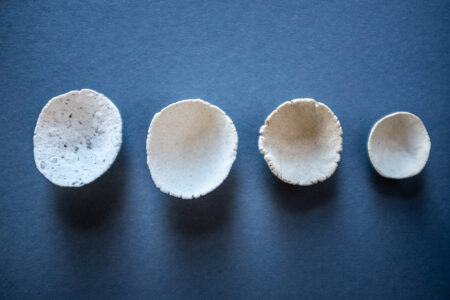WILD PORCELAIN
Engineering a porcelain body from local materials – hand building – wood firing
We are inviting you to an intensive, 10-day workshop Wild Porcelain, where we will be researching porcelain ingredients, discovering the composition of porcelain recipes and developing our own mixtures for porcelain through the understanding of the materials. Our focus will be set to sourcing local materials, and sustainability in creating environmentally friendly porcelain bodies along with sustainable high temperature wood firing.
During our workshop we will address:
– materials sourcing
– reading cartographic representations of Earth surfaces
– original porcelain ingredients of commercial origin
– porcelain ingredients collected in our local surroundings
– characteristics and qualities of these ingredients
– reading and developing our own recipes
– testing recipes
– analysing and improving recipes
– creating pieces from different porcelain bodies
– wood firing
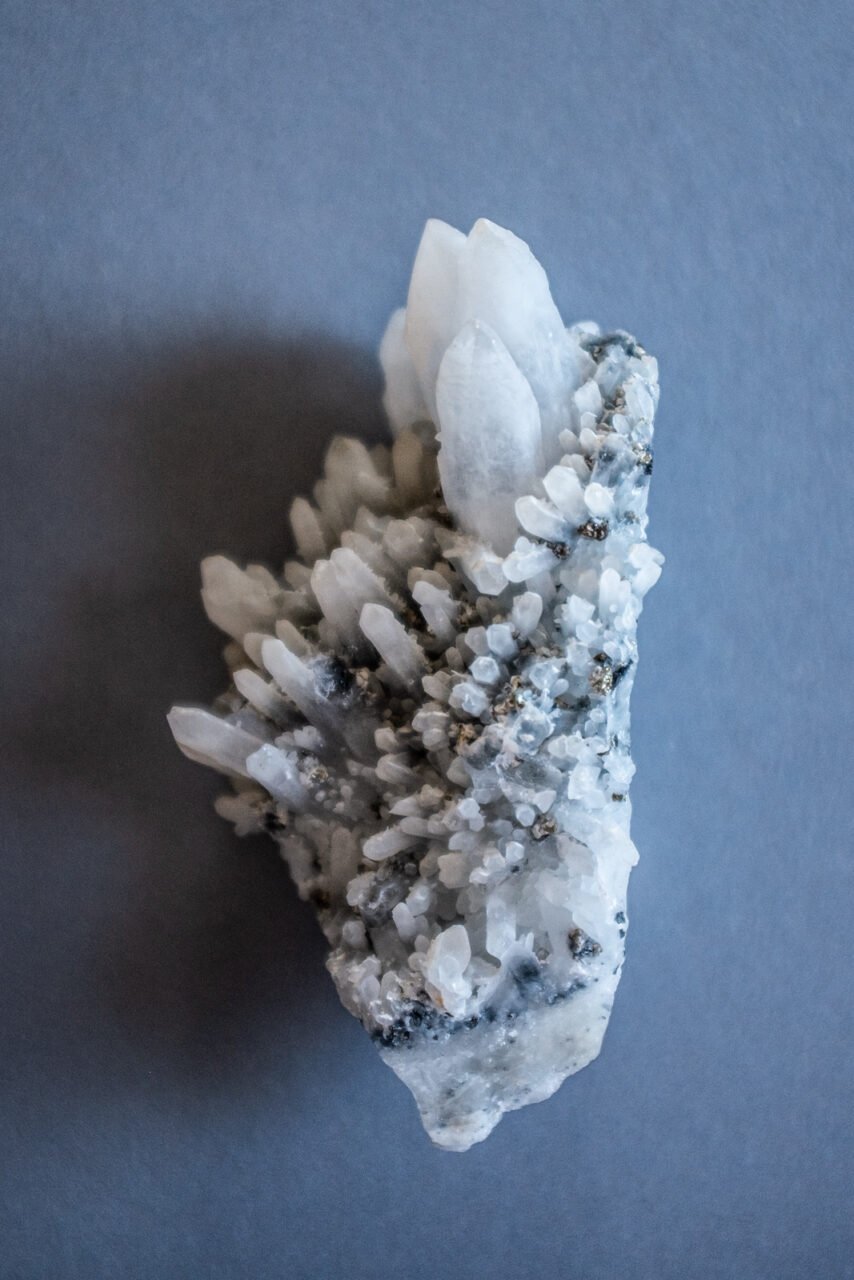
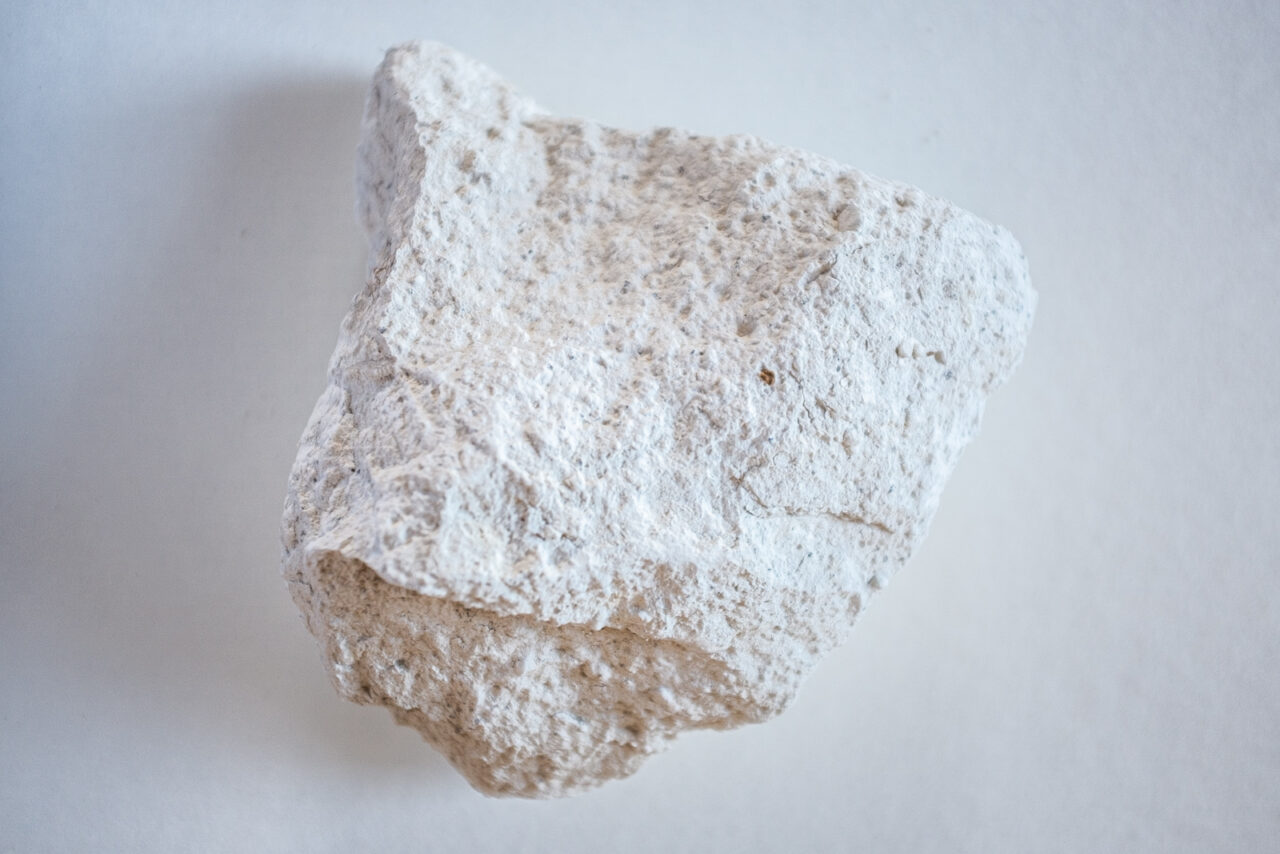

The workshop is suitable for both beginner and advanced participants.
It will be held by Antoinette Badenhorst, American porcelain artist and Anja Slapničar, Slovenian researcher of local geology.
Antoinette Badenhorst is a professional ceramic artist from South Africa with a strong calling for teaching. In the more than 30 years of her career she has taught to students of all levels in many continents. In her work she is focussing mostly on porcelain and has launched successfully an e-course on understanding porcelain. Her work is exhibited nationally and internationally and her accomplishments in the field of ceramics and of teaching have been honoured in articles and publications of international magazines. When not travelling for teaching she lives and works in the USA with her husband.
Visit her website to learn more: www.porcelainbyantoinette.com
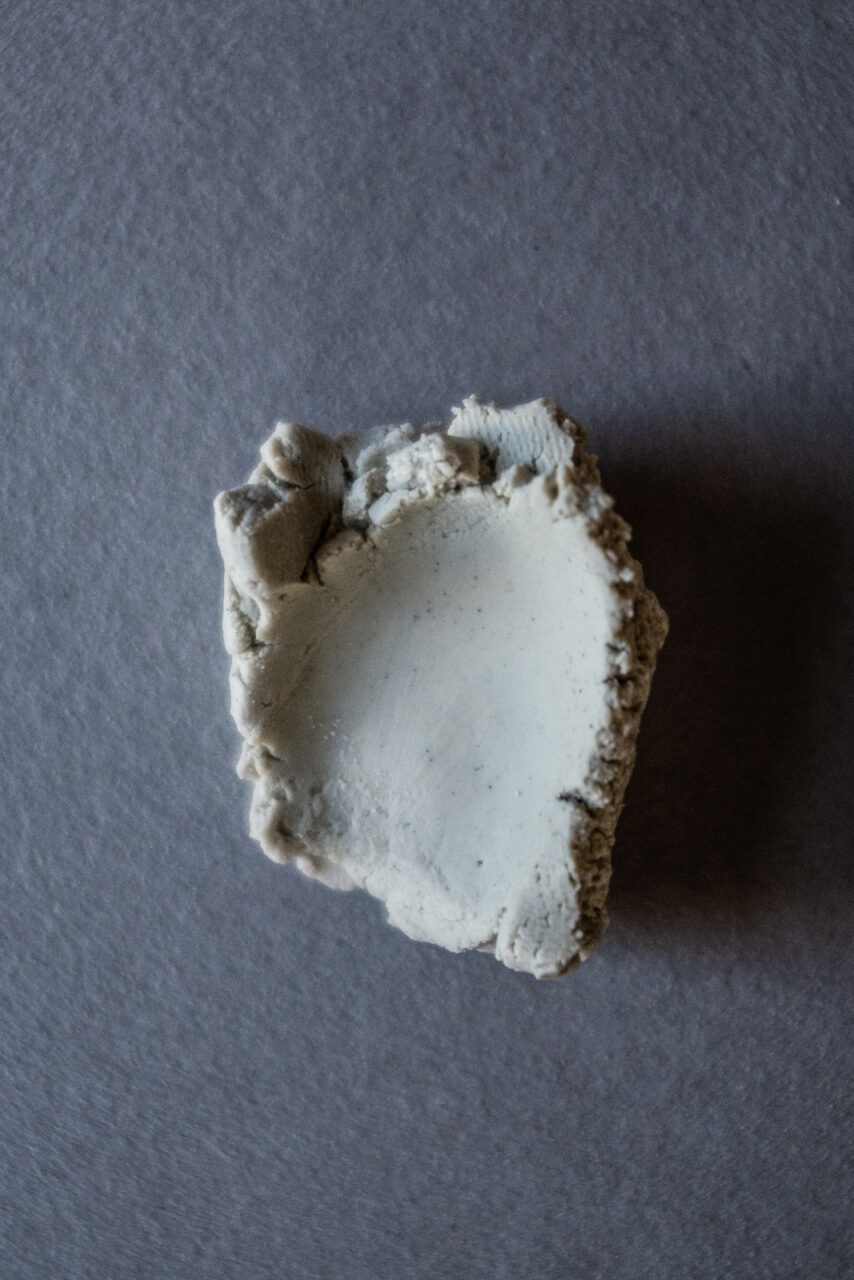
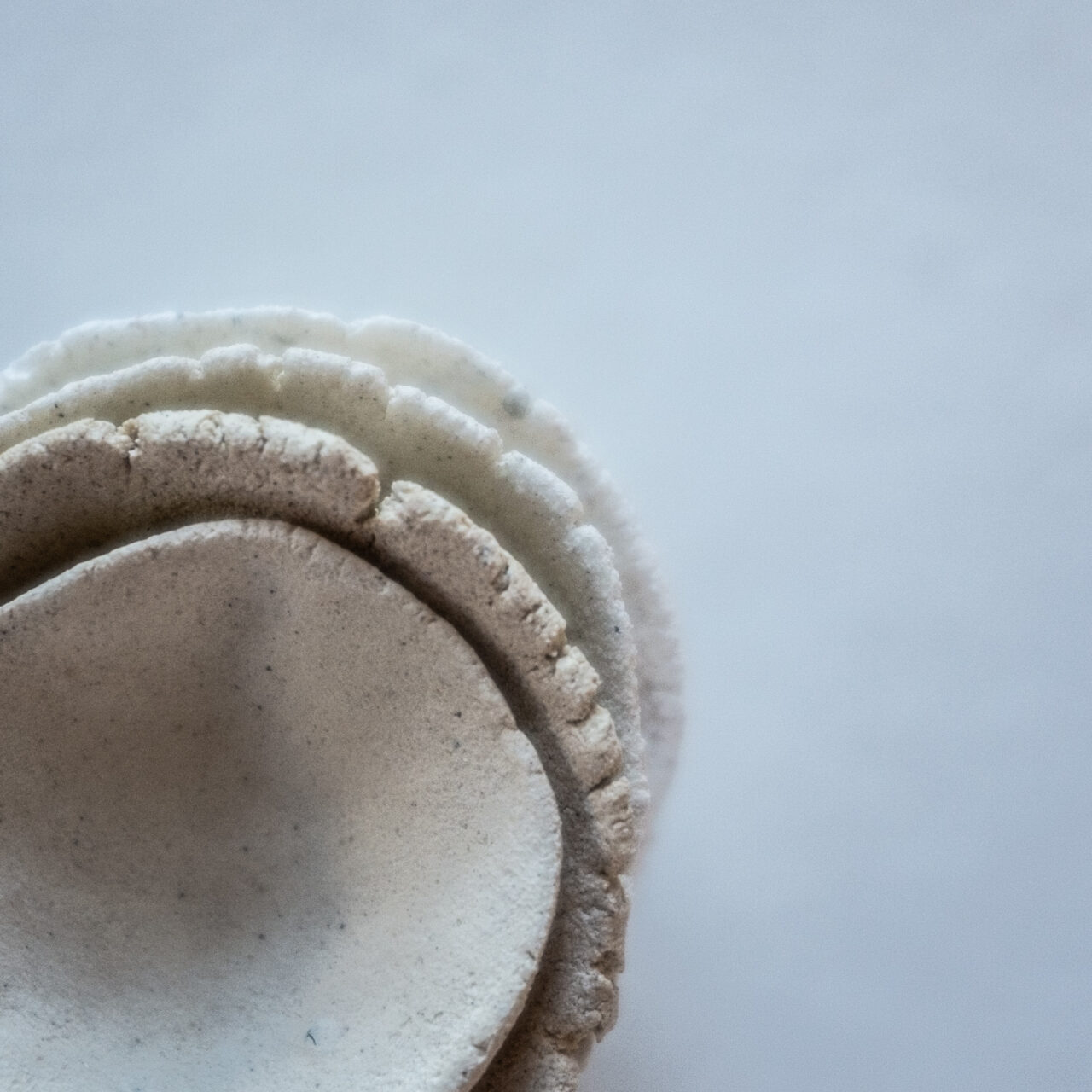
Day 1:
We will learn about basic elements that are typically found in porcelain body recipes, both commercial and those we can locally collect ourselves. We will discuss the characteristics of porcelain and porcelain recipes.
As for the practical part we will weigh and mix porcelain ingredients and add water. After the proper amount of rest we will remix and dry a sample on a clean plaster bat until leather-hard. From these we will create our first test samples.
In the afternoon we will pinch pots to get acquainted with pre-made porcelain clay, both commercial and pre-made of local materials.
This will give us a reference how different porcelains behave.
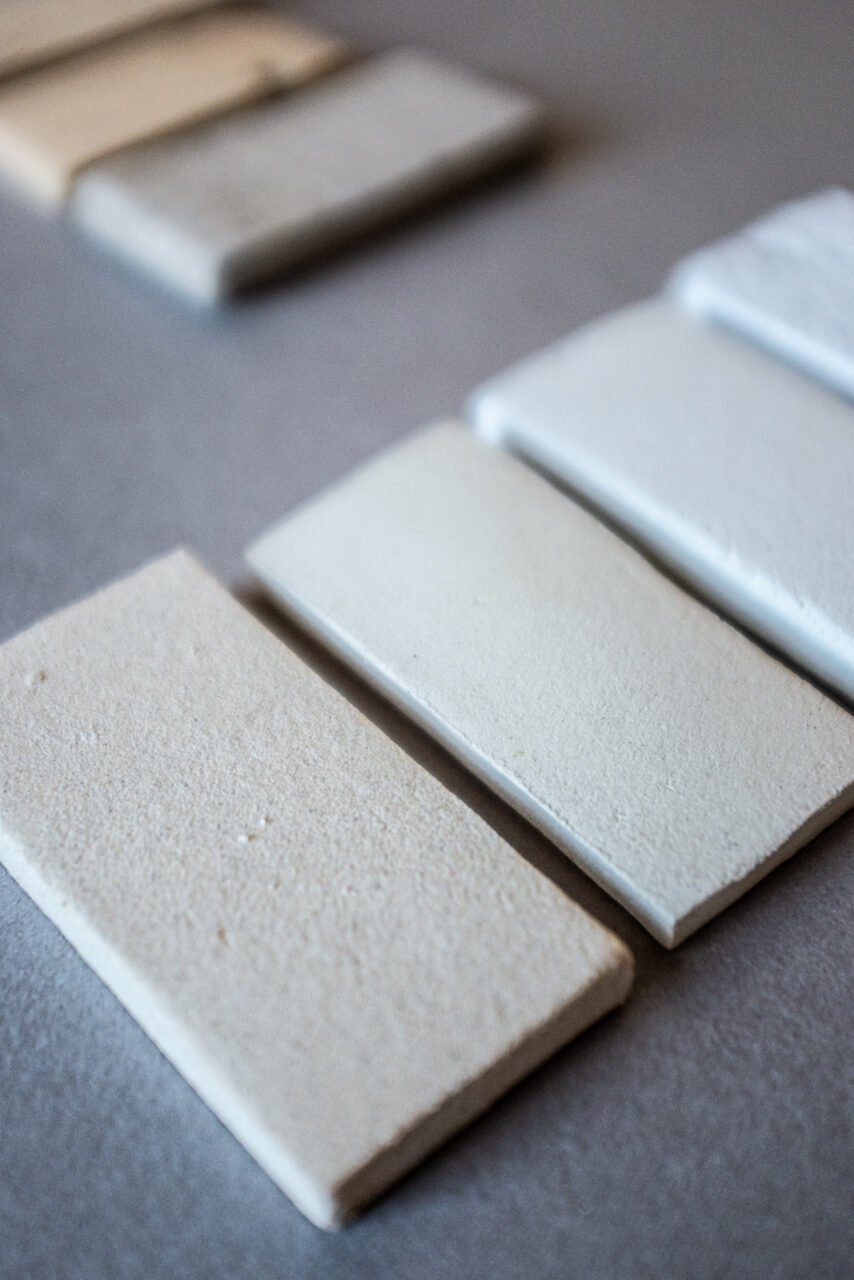
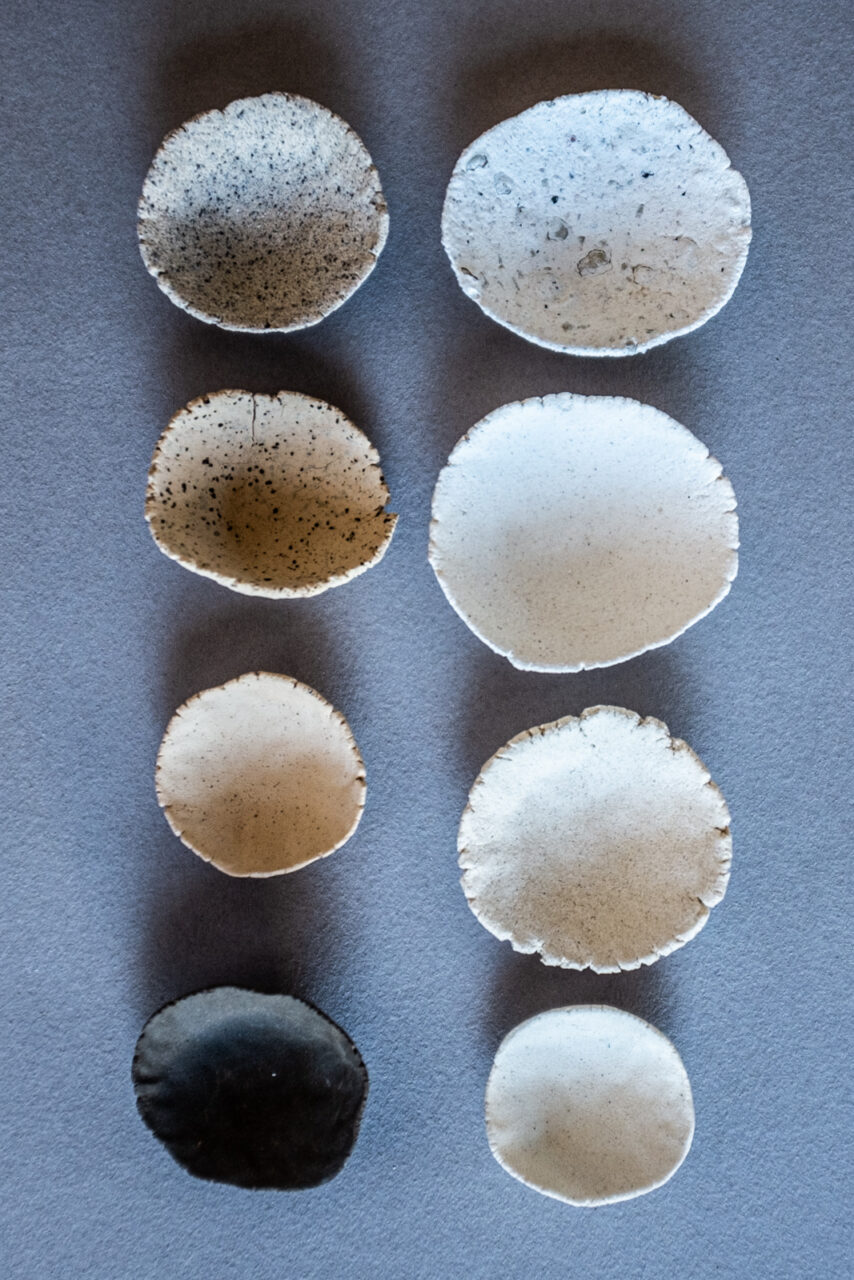
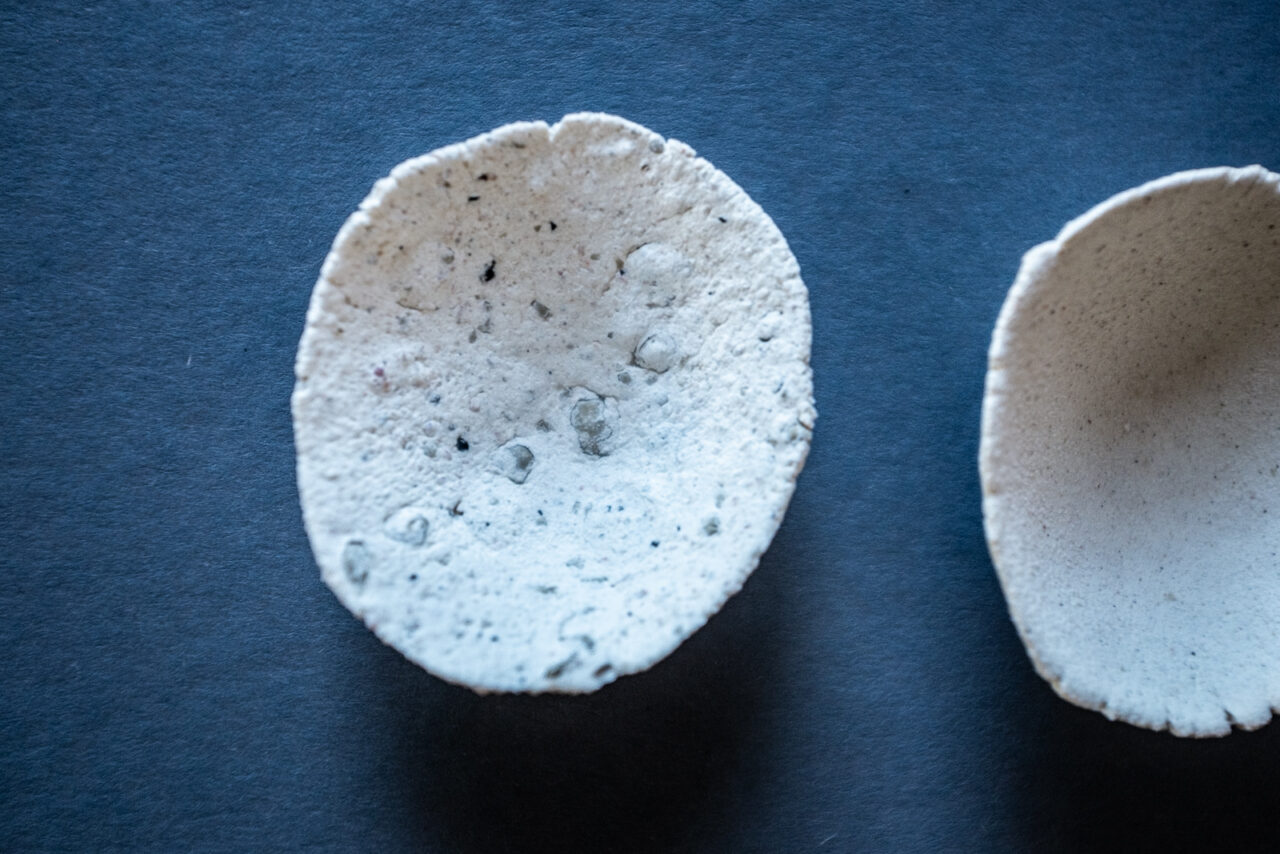
Day 2:
We will be creating small pinch pots with the porcelain bodies made on day 1 and we will discuss and explore the characteristics of these porcelains. We will finish with pinched pots.
We will test pre-made porcelains on the pottery wheel and with other hand-building techniques. The freshly made porcelain will need to age before we can make a true assessment of whether we would like to use it as is, or would like to alter the recipe, but we can only do that if we go through the whole process from making to firing.
At this stage, we want to push the limits of the porcelain we’ve created. If it stands up to our standard, we will make a true porcelain. However, we will have to see if we are happy with how it stretches, how it stands up in the kiln, and how we can make it better within the traditional nature of porcelain.
Day 3:
We will start planning other objects from pre-made porcelains and create some purely from wild porcelain along with creating comparable objects where other materials are worked in or combined. Since we are working with wild porcelain the whole process will be about research while creating. Therefore we can explore the material by itself, or in combination with other raw materials, which are traditionally not associated with porcelain.
We can further explore possibilities with the addition of organic materials that will fire away.
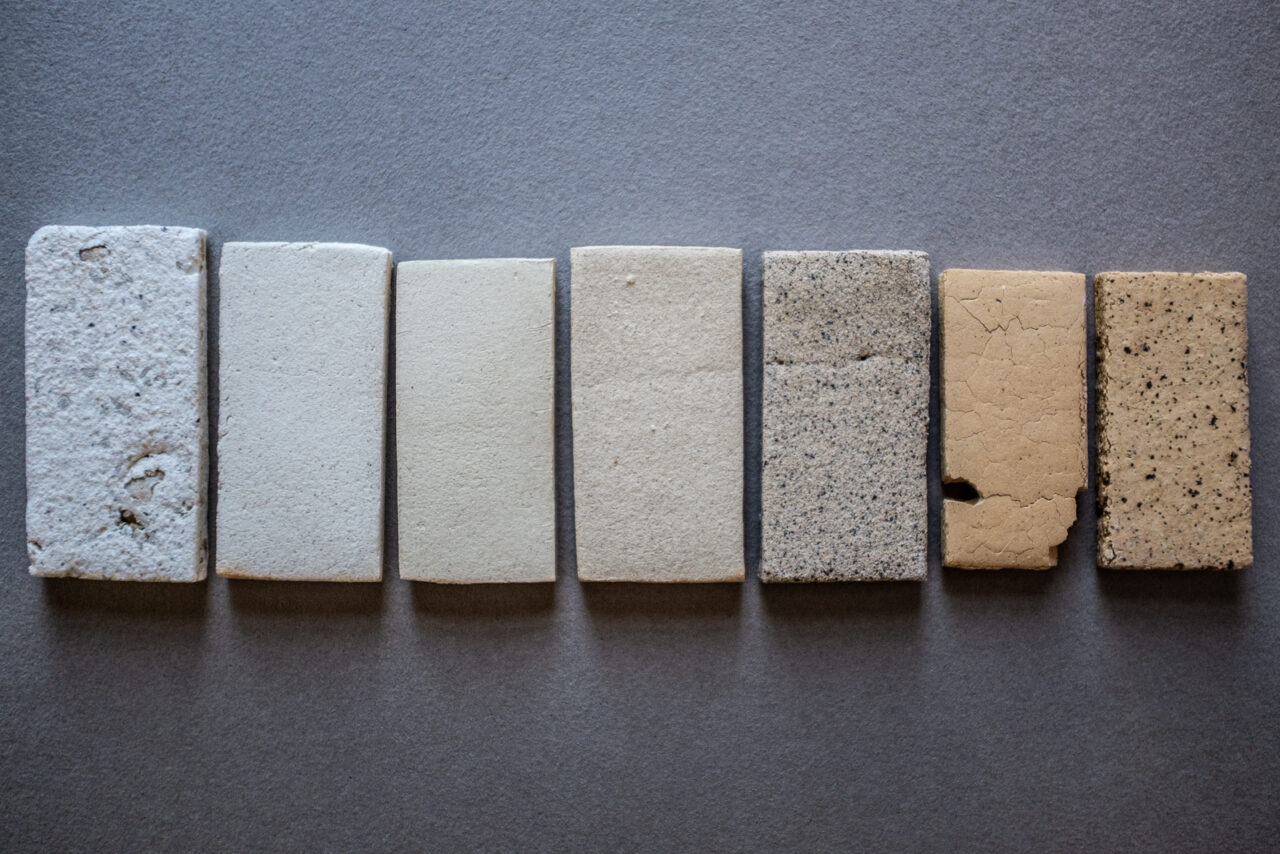
Day 4:
We will continue creating pieces and further explore which mixtures we can use or improve.
Day 5:
This will be the last day for making pieces. We will then summarise and analyse all the results and suggest improvements. We will form a round table of discussion which will allow time for addressing some final questions about porcelain bodies.
Day 6:
We will create glazes from local ingredients and glaze our pieces. We will pack for moving to a kiln location which is a 45 min drive away.
Day 7:
We will be preparing the kiln: Wadding, kiln wash and organising pieces. We will start with kiln loading.
Day 8:
Loading.
Day 9:
Firing.
Day 10:
Firing.
The workshop will be held in two locations:
– Ljubljana for the main part of the workshop: 14-20 April
– Novo mesto for the wood firing: 20-24 April
The first part will be held at our main studio in the center of Ljubljana. The address of the studio is: Tržaška cesta 36, 1000 Ljubljana
Accommodation in Ljubljana:
The accommodation in Ljubljana is NOT included in the price of the workshop. We recommend each individual to have a look for hotels, hostels or apartments in the surrounding area. If you have difficulties, we can send you some suggestions.
The second part of the workshop will be held in Črešnjice, Novo mesto, where firing will take place. We will move to Novo mesto on day 7, Sunday, 20 April, and will stay there until the end of the firing – Thursday, 24 April. The kiln can be opened after 4 days of cooling, and is scheduled to open on Sunday, 27 April.
Accommodation in Novo mesto:
From 20 – 24 April accommodation IS included in the price of the workshop. We will be staying in a house in Novo mesto with shared rooms.
To apply write us to studio@anjaslapnicar.com →
When
14 – 24 April 2025,
10:00 – 18:00, lunch break 13:00 – 14:00
Workshop teachers
Antoinette Badenhorst, American porcelain artist & Anja Slapničar, Slovenian researcher of local geology
Where
Studio Anja Slapničar,
Tržaška cesta 36,
1000 Ljubljana, Slovenia →
& Novo mesto, Slovenia for wood firing
Price
1200€ / person
Registration is confirmed with the payment of 50% of the workshop fee. The second part is paid at the beginning of the workshop.
Refund policy: No refund is possible once the payment is confirmed.
More info and apply to
studio@anjaslapnicar.com →
